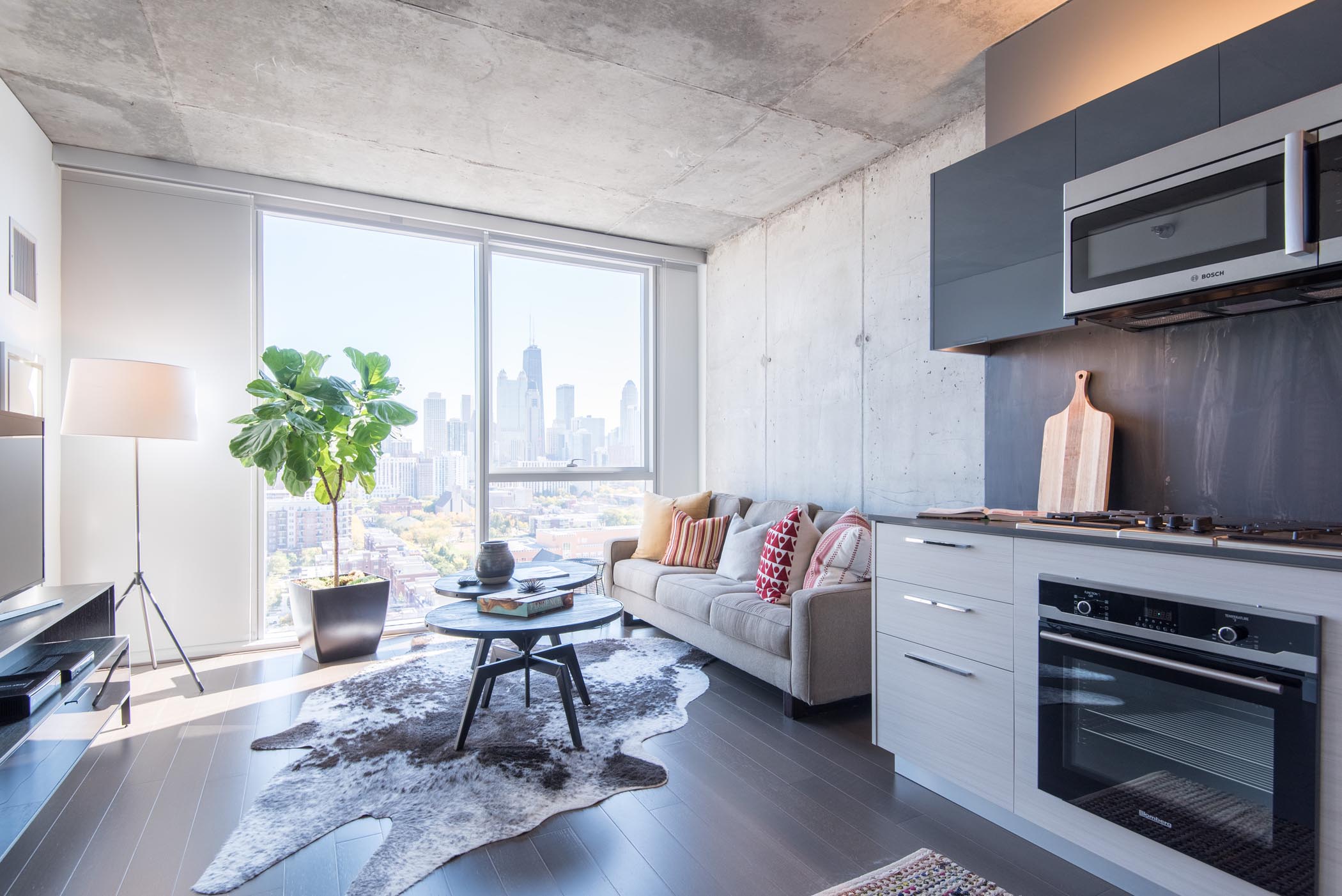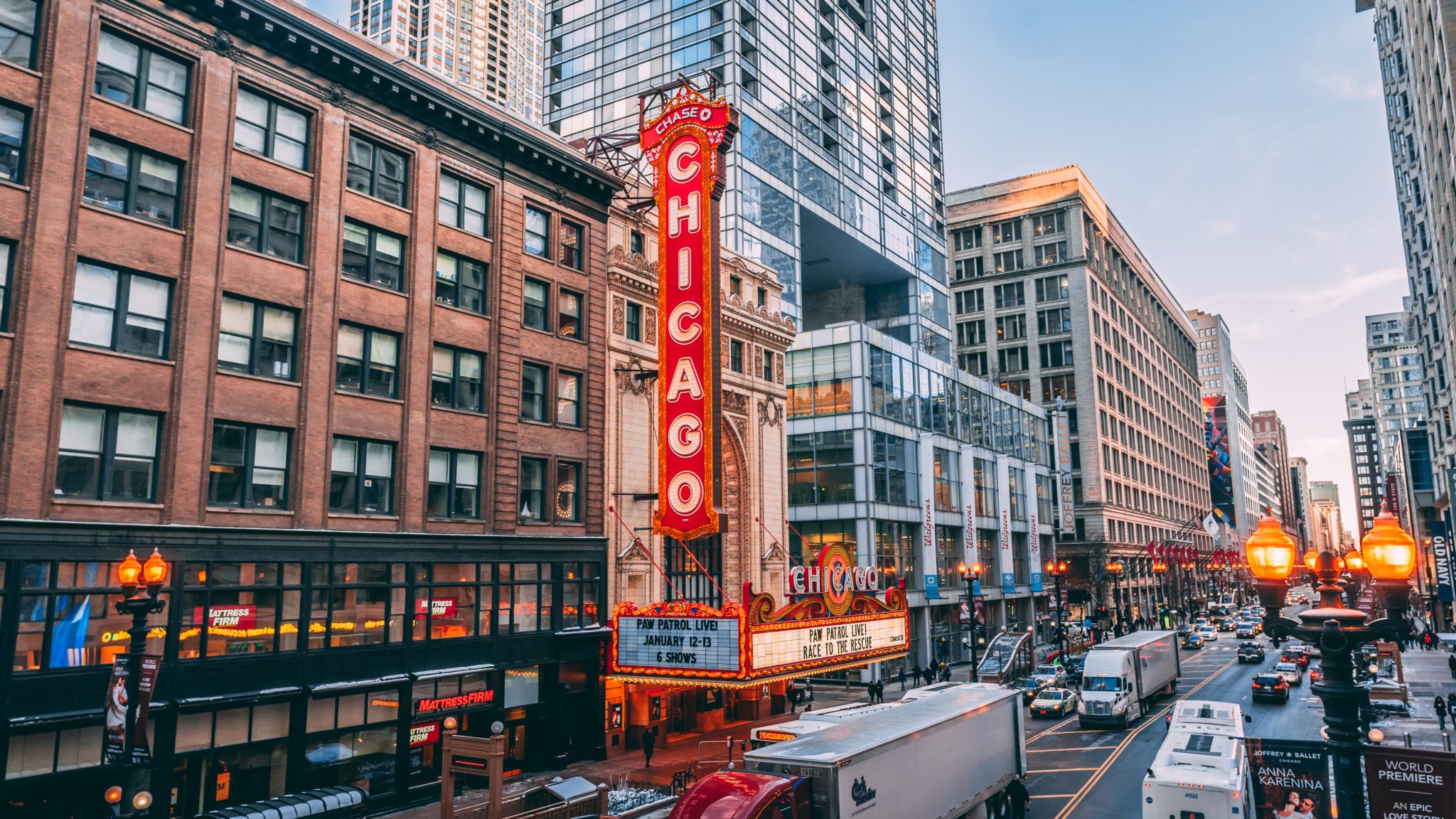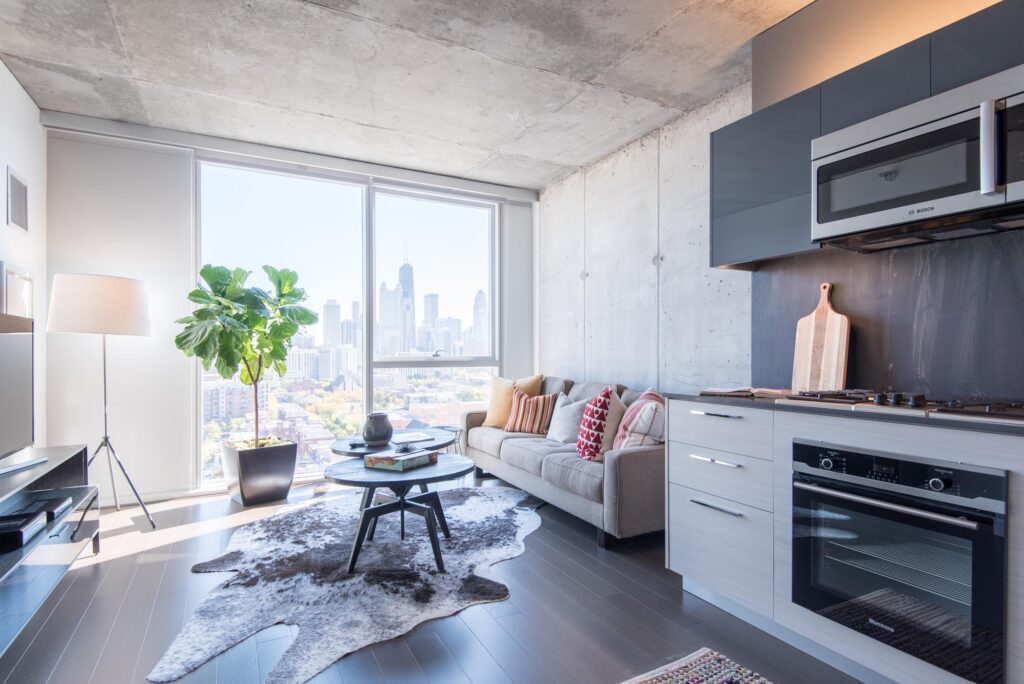Chicago’s Apartment Market is a Tale of Two Cities

Chicago’s growing rental market was the subject of much discussion at the 2014 Metro-Chicago Apartment Summit. The event brought together a diverse crowd of residential developers, lenders, brokers, and investors to discuss the future of Chicago’s rental market and how the current construction boom is going to play out in 2014 and beyond as new rental properties become available. Patrick Tuohy, Vice President of Marquette, summed up the feeling of most attendees by highlighting how “We have seen as much change in the last 5 or 6 years as we ever have in the industry.”
Although most of the panelists agreed that Chicago isn’t experiencing a real estate bubble like the one that wrecked havoc on the national economy 6 years ago, Lee Kiser, Principle of the Kiser Group, mentioned how, “At the luxury end of the market, we have some problems coming.” Kiser’s comments highlighted a trend that the summit’s panel all noted: Chicago’s rental market is increasingly becoming a tale of two cities, with the city’s neighborhoods experiencing a much different market than downtown development.
Communities in and around Downtown Chicago – River North, Streeterville, Lakeshore East, the Loop – are expected to see continued residential development through 2015 with many luxury high-rises planned or already under construction. Matthew Welke, Principal and Managing Director of Essex Realty Group, Inc, doesn’t believe that these new developments will inflate the downtown rental market, and said, “I think what’s more important is, ‘Does this construction trend continue into 2016 and 2017?’”
The rental market in the city’s neighborhoods, especially those on the north and northwest sides, are a much different story. Neighborhoods like Lincoln Park, Lakeview, Uptown, Rogers Park, and Logan Square haven’t seen the same scale of residential development as what is taking place downtown, and rents are likely to remain high as residents clamor for new and upgraded housing in these areas. As Lee Kiser explained, “There’s not the rent to sustain new construction, but not enough that we are going to see rent reductions in Chicago’s neighborhoods.”
Rather than focus on new construction, developers and investors in the city’s north side neighborhoods are using property improvements and unit upgrades to set their rental properties apart from competitors. Andrew Ahitow of Chicago Apartment Finders said plainly, “Granite kitchens, stainless steel, hardwood floors… if you don’t have it you are going to be under market rents.” Similarly, Jeffrey Michael of Horizon Realty Group said that focusing on technology, functionality, and service are the ways to attract and retain residents in the competitive north side rental markets.
Looking forward to 2015 and beyond, it is still a great time to be a renter in Chicago. With new properties coming online and developers investing in unit upgrades and improved services, a more diverse market means more options for renters to find that perfect home.
Search The Blog
Most Popular

10 Companies Headquartered in Chicago

How Do Chicago Apartment Finders Get Paid?

Our Expert Apartment Finding Tips Will Answer Your Toughest Questions
About Us
Up Next

Pre-Leasing Begins at Madison Aberdeen Place in West Loop
Luxury Living Chicago Realty is excited to announce we have begun pre-leasing at Madison Aberdeen Place, two 27-unit buildings located at 20 and 22 […]

Aaron Galvin Receives Chicago’s Top Rental Broker Award 2013
The Chicago Association of Realtors recently celebrated and honored the sales achievements of Chicago’s top producing real estate brokers of 2013. Our team was […]

Celebrating St. Patrick’s Day Chicago Style
Chicagoans have suffered through a long, difficult winter, which guarantees we are in for a lively spring. When the St. Patrick’s Day celebrations begin […]

West Loop Seeing More Residential and Commercial Development
River North has long been home to some of the city’s top luxury Chicago apartment buildings, and thanks to Chicago’s flourishing technology industry, the […]
